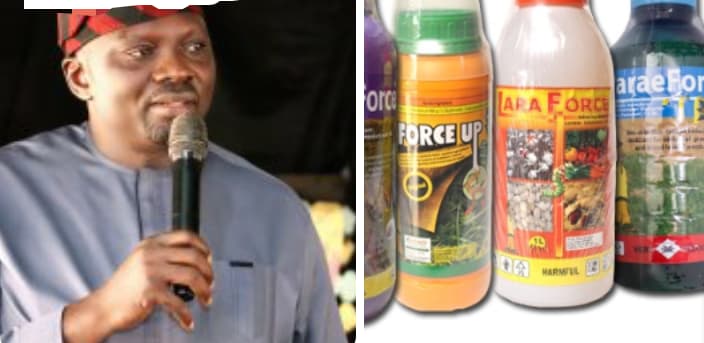Activist Slams Apa-Agatu Lawmaker Over Herbicide Donations Amidst Grief
By. Queen Aba
Makurdi-Benue state
In the wake of the shocking murder of 11 residents in Edikwu-Ankpali by suspected Fulani herdsmen, Hon. Pst Ojotu Ojema’s gesture of donating herbicides to the grieving community has sparked outrage and bewilderment among local activist and residents, who argue that safety must come before agricultural support in a time of crisis.
Chief Hon. Pst Ojotu Ojema, the current representative for the Apa/Agatu Federal Constituency and Chairman of the House of Representatives Committee on National Inland Waterways Authority, extended his condolences to the Apa Traditional Council after the devastating attack that left families mourning and communities in fear. However, his simultaneous decision to donate agricultural inputs rather than focus on security measures has raised eyebrows and drawn sharp criticism.
In a climate riddled with insecurity, many feel that Hon. Ojema’s priorities are misplaced. Comrade Paul G. Edoh Jr, a prominent social rights activist in the constituency, condemned the donation, calling it “meaningless and out of place,” and questioning the viability of farming in a community where violence looms large. As Edoh Jr. pointed out, “Productive farming cannot thrive in an environment plagued by fear and violence.” He stressed that the people of Edikwu cannot simply return to farming amidst such threats.
Highlighting the proactive stance taken by other representatives like Distinguished Honourable Martins Esin from Akwa-Ibom state, who has successfully established a security committee equipped with patrol vehicles and surveillance technologies, Edoh Jr. underscored the urgent need for local officials to prioritize community safety. “Empowering local government chairmen to form security committees would have been a much more strategic and relevant initiative for safeguarding lives and livelihoods,” he asserted.
As the community grapples with the aftermath of this heinous act, the call for tangible solutions to bolster safety is growing louder. While expressions of condolence are important, activists like Edoh Jr. emphasize that they must be accompanied by actionable strategies that address the immediate needs of a distressed population.
“Hon. Ojema’s latest move serves as a reminder that addressing insecurity must take precedence over symbolic gestures,” Edoh Jr. concluded, urging leaders to reconsider their approaches to the plight of communities in crisis. The people of Apa deserve more than hollow promises; they need real solutions to ensure their safety, allowing them to rebuild their lives and return to their farms.
